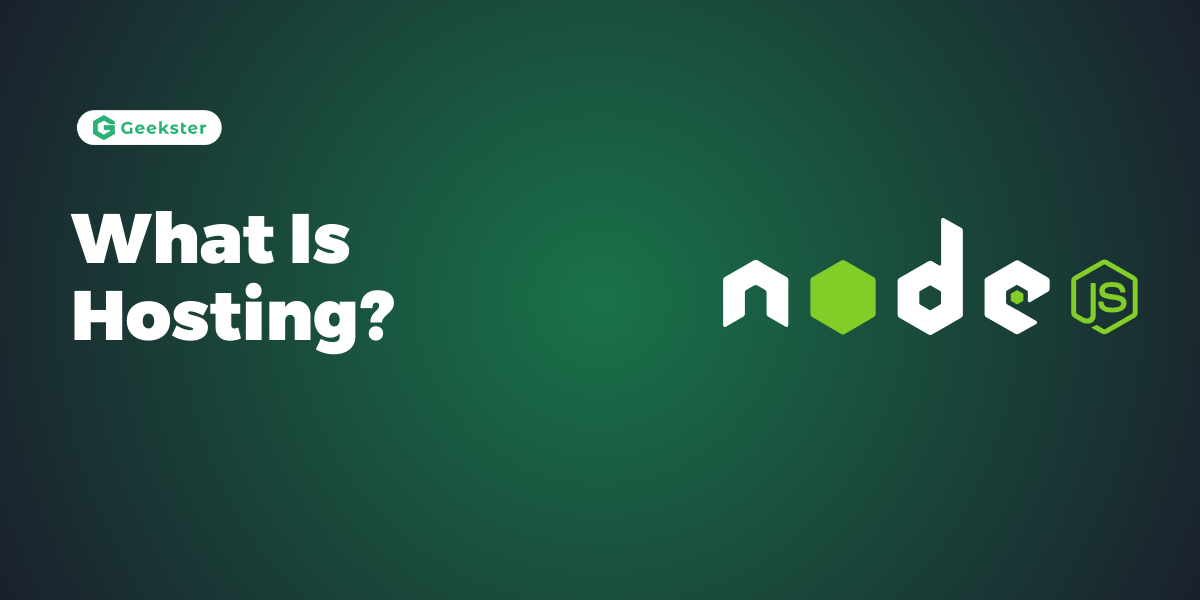Introduction
Hosting in Node.js refers to the process of deploying and running Node.js applications on a server or computing environment accessible over the internet. This allows users to access and interact with the applications through their web browsers or other client applications. It involves configuring the server environment, uploading application files, installing dependencies, and ensuring that the application is accessible to users.
It providers offer various services and infrastructure options for deploying Node.js applications, including virtual servers, cloud platforms, and managed its solutions. These providers offer different features, scalability options, and pricing models to suit the needs of different applications and organizations.
Advantages of Hosting
- Scalability
Node.js applications are inherently scalable due to their non-blocking, event-driven architecture. It providers offer scalable infrastructure solutions, allowing applications to handle increasing traffic and workload efficiently. - Performance
Node.js excels in high performance and low latency, ideal for fast, responsive web apps. Hosting in Node.js leverages these benefits in production. - Full-stack Development
Node.js enables full-stack development by allowing developers to use JavaScript for both client-side and server-side programming. Hosting Node.js applications provide a seamless environment for deploying and running full-stack applications without the need for additional server-side technologies. - Community Support
Node.js has a vibrant and active community of developers and contributors, providing a wealth of resources, libraries, and tools for building and hosting applications. Hosting in Node.js allows developers to tap into this community ecosystem for support and collaboration. - Developer Productivity
Node.js offers features such as npm (Node Package Manager) for managing dependencies and a rich ecosystem of modules and libraries for building applications. Hosting in Node.js streamlines the development and deployment process, enhancing developer productivity and efficiency. - Real-time Communication
Node.js excels at handling real-time communication and data-intensive applications, such as chat applications, online gaming, and collaborative tools. Hosting Node.js applications provide a reliable platform for delivering real-time experiences to users.

Websites help in hosting in Nodejs
- Heroku
Heroku is a popular PaaS provider offering fully managed hosting for Node.js applications with simple deployment, scalability, add-ons, and Git integration. - DigitalOcean
DigitalOcean offers cloud services with virtual private servers (droplets) that are suitable for hosting Node.js applications. It provides a straightforward user interface, scalable infrastructure, and various pre-configured images for Node.js. - AWS (Amazon Web Services)
AWS offers Node.js hosting via EC2, Lambda, and Elastic Beanstalk, ensuring flexibility, scalability, and additional services. - Google Cloud Platform (GCP)
GCP hosts Node.js with Compute Engine, App Engine, and Cloud Functions, ensuring scalability, reliability, and integration with Google services. - Microsoft Azure
Azure hosts Node.js with Virtual Machines, App Service, and Functions, ensuring scalability and integration with Microsoft tools and services. - Netlify
Netlify hosts static sites and serverless functions, ideal for Node.js apps with continuous deployment, version control, and CDN for optimization. - Vercel (formerly Zeit)
Vercel is a platform focused on serverless deployment and static site hosting. It provides a seamless deployment process, integration with Git, serverless functions support, and global CDN for optimal performance.
Conclusion
In conclusion, Hosting Node.js applications provide scalable, reliable, and efficient solutions for deploying modern web applications. With a plethora of its providers offering flexible options and developer-friendly features, hosting in Node.js enables seamless deployment, efficient resource management, and optimal performance, empowering developers to focus on building innovative applications
Frequently Asked Questions
In Node.js it involves deploying and running applications on a server provided by a hosting provider, allowing internet access and interaction.
In Node.js applications offer advantages such as scalability, performance, reliability, security, and flexibility. It allows developers to deploy and run modern web applications efficiently in production environments.
Deploying a Node.js app includes configuring hosting, uploading files, installing dependencies, and ensuring accessibility. Providers offer diverse deployment options and strategies.

